Keeping Communities Healthy With Foods They Know
Corn is a plant that has made its rounds globally. The Portuguese introduced it to the Kenyans while trading during the 19th century, and the latter group turned the plant’s dried kernels into a white meal porridge they named ugali. Cornmeal porridge has caught on all over the world, with every country tinkering with the texture to produce its own variation.
Ugali is more malleable than the Italian’s polenta and not runny like grits, which originated with the Indigenous people of this land. Caribbeans call their cornmeal porridge cou-cou. To South Africans, it’s pap. Eastern Europeans know it as mamaliga. In South and Central America, it is the corn dough used to make tamales.
All over the world, cornmeal porridge is a familiar food: Not only does it have nutrients that nourish but it’s the starch that goes with flavorful vegetables and meats akin to each country’s culture and region. Nonprofits who run food banks for people of all backgrounds call familiar food culturally specific or culturally relevant food: It’s essentially the foods of a particular region that are key to a people’s diet—or that they simply love to eat. When Kenyans come to the U.S., they look for ugali the way we Americans look for cheeseburger joints in Austria or Zimbabwe.
And thanks to United Way of King County and our partners, ugali seekers—particularly those who are low-income and living in food deserts—need not look far. Through our Food Security Assistance Program, we are working with more than two dozen community organizations (most of which comprise people from the neighborhoods they serve) to provide low-income families better access to food resources.
It means we and our partners are changing the way people see the food bank foods their clients need—from simple, basic and sometimes unhealthy staples to items people consume every day, including those that are akin to their cultures. That means you don’t give an ugali eater a box of grits and say, “Close enough.” You learn about your clientele’s unique cultures, backgrounds and palates, then respond accordingly.
“Ugali is our staple food; we cook it twice a week,” said Idah Kimani, a Kenyan who lives in Seattle and receives ingredients for ugali at the Seattle-based Center for Multicultural Health, an organization that works with individuals, groups and organizations in the community to promote health and well-being in diverse communities. The Center for Multicultural Health is one of the Food Security Assistance Program members, serving residents of many races, ethnicities and backgrounds with foods you might not normally see in a supermarket chain.
On a recent visit to the organization, Kimani said she enjoys finding familiar foods there. “Sometimes you don’t have foods you need and they’ve provided us with the food,” she said. “It has been a great source of help for us. When you come here and see that they have sukuma wiki [a green, leafy vegetable similar to spinach and collards], we are very happy to see that. It’s amazing.”
Lucy Anyango of Kenya said the Center for Multicultural Health has been a godsend, adding, “Right now, I’m on disability. I cannot thank these people enough for having this. It is very, very helpful.”
The Center for Multicultural Health’s food distribution at Emerald City Seventh-day Adventist Church has all the trappings of a local grocer, from fruits, vegetables and meats to cooking oils and spices—all spread out and easily retrievable for a clientele that includes Africans and African Americans.
Said Shelley Cooper-Ashford, executive director of the Center for Multicultural Health, “To give people some dignity that they deserve we are giving them foods they’re used to eating every day.”

Maua Tamambele of Tanzania said that the Center for Multicultural Health also regularly mixes up the different food offerings rather than distributing the same items week after week. “We don’t miss our traditional food” because the center supplies it, Tamambele said. She added, “Them helping us is a really big deal because food is everything. When you have food, you’re halfway there.”
Across town at the Urban Fresh Food Collective, director Monica Rodriguez stocks up on masa, a corn-based flour that people of Latino ancestry use to make tortillas, gorditas and tamales. She also has foods for clients from Asian and African countries, stocking up on different types of beans and legumes.
But Rodriguez added that the Urban Fresh Food Collective is working to ensure the familiar foods it offers are good for a healthy diet.
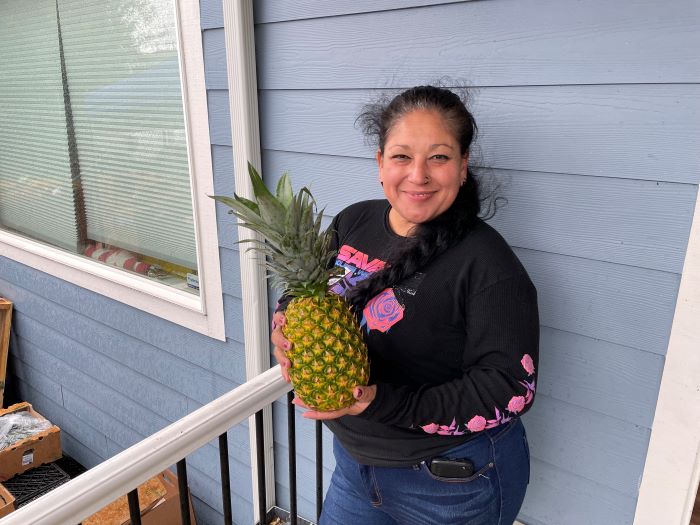
Rodriguez points to packages of soy sauce and said, “We will be discontinuing those. In the beginning we were providing whatever [familiar food that was available] because we needed food so we couldn’t be picky at that moment. But right now, we are at the point where need to take care of our community.
“So,” Rodriguez added, “we are encouraging people not to consume high levels of sodium, no sugar or grease—that is the commitment we have right now.”
If you’d like to stop by a Food Security Assistance Program provider, click here for more information.

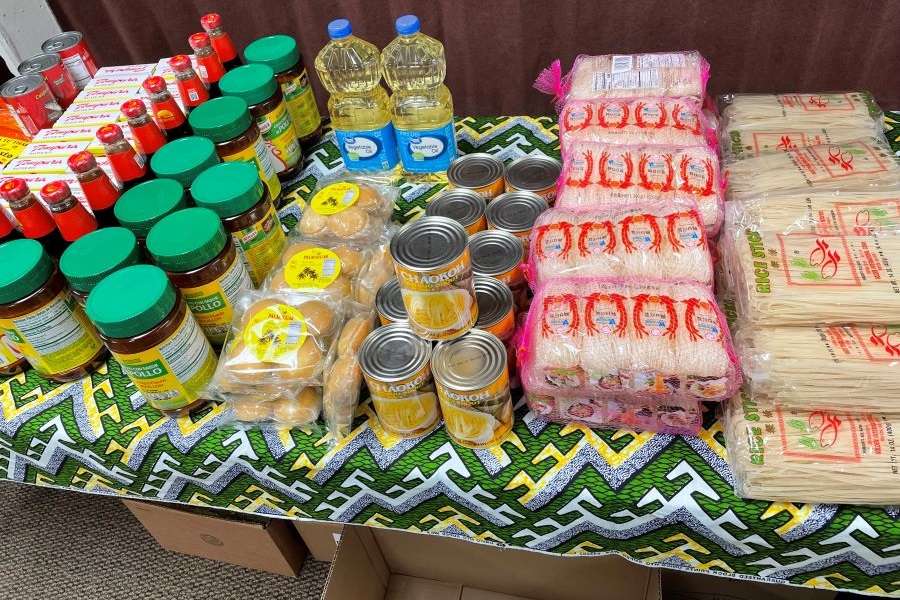
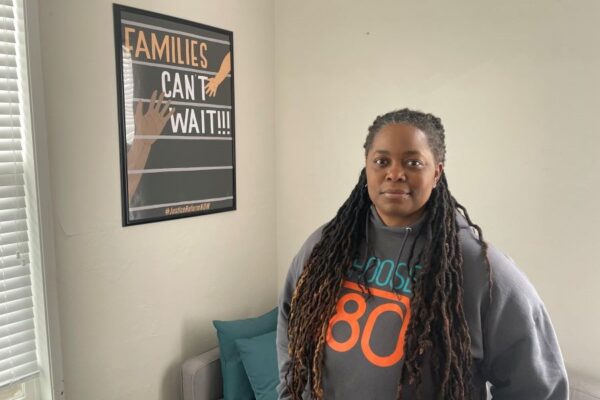
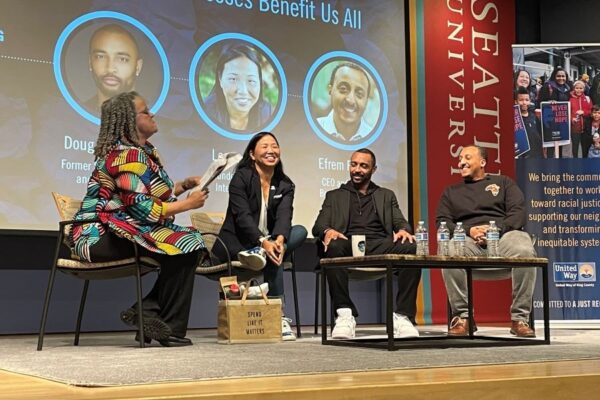
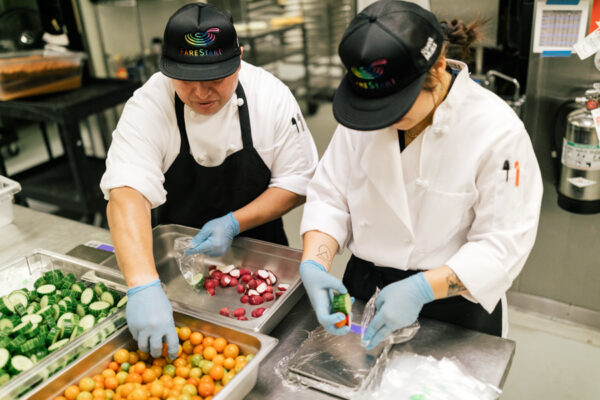
Comments